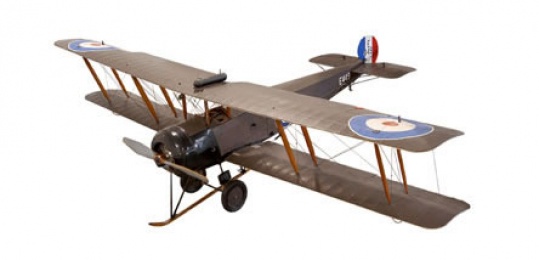Centenary News spoke with Adam Shepherd, Head ofCollections Management at the RAF Museum, about the Museums current projects and plans for the Centenarycommemorations.
Centenary News: What projects are you currently workingon?
Adam Shepherd: Two of our major projects at the moment relate to the digitisation of war documents. The first is Casualty Cards;we have a collection of around 55,000 ranging from 1912 to 1929. Werecently finished digitizing them all and are currently in the process ofindexing them. The other is the digitising of the RAF Muster Roll and first RAFAir Force List, which record information on over 200,000 RAF personnel servingon 1st April 1918 the day the service was formed.
CN: What are your plans for the informationafter the indexing process is finished?
AS: The Museum recently received a grant from the EsmeFairbairn foundation to enable a the development of a website, through which allthe data will be made accessible once it has been organised. Were aiming tolaunch it in 2014, in line with the centenary.
CN: It is a challenge for you to make theCentenary relevant for a young audience?
AS: It is certainly a challenge to inspire andattract a young audience. People want to see more than just aeroplanes and war.Relating human experiences is key to understanding what the war was like andthese stories and artefacts really appeal to younger generations. The responseto our 100 First Air War Objects consultation has been impressive, so wed bekeen to continue enabling public participation as we develop and refinethe Museums First World War exhibition.
CN: What is your reaction to the Governmentsplans for the Centenary Commemorations, as outlined by David Cameron? Do youthink they justify the event?
AS: The emphasis placed on conserving,exploring, sharing and remembering is one that ties in very well with the Museumsproject to use a wider range of its First World War collections and make themaccessible to a wider audience. Delving into personal and local histories will,I think, provide a platform through which more individuals and communities willbecome aware of the great changes that the war introduced within our society asa whole. The First World War shaped the world we live. Stories such as theadvancement of women and the rapid development of technology are part of ourstory. So while we remember the war we will also, through effectiveinterpretation of the conflict, learn more about our place in history and theresponsibility we have to remember those who served.
To take part in the RAF Museum’s Future Exhibition Survey, click here. To view the Museums Flickr stream,click here.
Images courtesy of the RAF Museum website.
